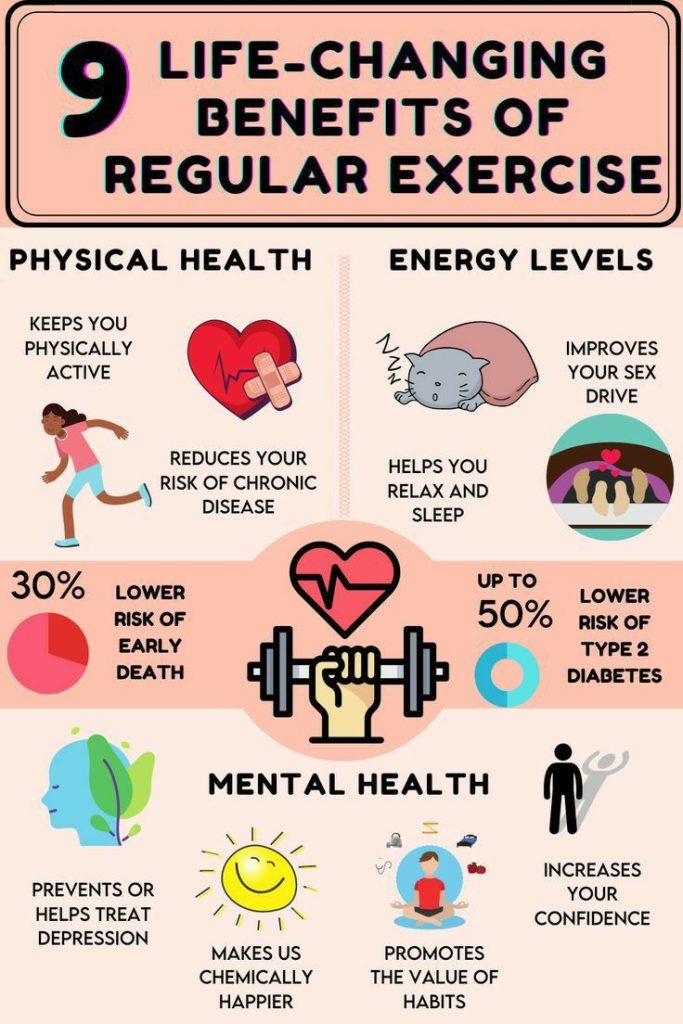Regular exercise is a cornerstone of a healthy lifestyle, offering a multitude of benefits that extend far beyond mere physical appearance. The benefits of regular exercise for long-term health encompass not only improved cardiovascular fitness and muscle strength but also enhanced mental well-being and emotional resilience. Engaging in consistent physical activity can significantly reduce the risk of chronic diseases, boost your immune system, and promote longevity, making it an essential component of a balanced life.
In this article, we will delve deeper into the various advantages of maintaining a regular exercise routine. You will learn how exercise can improve your mood, increase your energy levels, and enhance cognitive function. Additionally, we will explore the role of physical activity in weight management and its impact on overall health. By understanding these benefits, you will be better equipped to make informed decisions about incorporating exercise into your daily routine.
Furthermore, we will provide practical tips on how to get started with an exercise regimen that suits your lifestyle and preferences. Whether you are a seasoned athlete or a beginner looking to make a change, this guide will offer valuable insights to help you stay motivated and committed to your fitness journey. So, read on to discover how embracing regular exercise can transform your health and well-being for the long haul!
Improved Cardiovascular Health
Regular exercise plays a crucial role in enhancing cardiovascular health. Engaging in physical activities such as running, swimming, or cycling strengthens the heart muscle, improving its efficiency in pumping blood throughout the body. This increased efficiency helps lower blood pressure and reduces the risk of heart disease, which is a leading cause of death globally.
Moreover, consistent exercise can help manage cholesterol levels by increasing high-density lipoprotein (HDL) cholesterol while decreasing low-density lipoprotein (LDL) cholesterol. This balance is essential for maintaining a healthy cardiovascular system and preventing atherosclerosis, a condition characterized by the hardening of arteries.
Weight Management and Obesity Prevention
One of the most significant benefits of regular exercise is its role in weight management. Physical activity burns calories, which is essential for maintaining a healthy weight or losing excess weight. When combined with a balanced diet, regular exercise can help individuals achieve and sustain their weight loss goals, reducing the risk of obesity-related diseases such as type 2 diabetes and certain cancers.
Additionally, exercise boosts metabolism, allowing the body to burn more calories even at rest. This metabolic increase is particularly beneficial for those looking to maintain their weight long-term. Incorporating strength training into a fitness routine can further enhance this effect by building muscle mass, which burns more calories than fat tissue.
Enhanced Mental Health and Well-being
Regular physical activity is not only beneficial for physical health but also plays a vital role in enhancing mental health. Exercise stimulates the production of endorphins, often referred to as “feel-good” hormones, which can alleviate symptoms of anxiety and depression. Engaging in regular workouts can lead to improved mood, increased self-esteem, and better overall emotional well-being.
Furthermore, exercise can serve as a powerful stress reliever. Activities such as yoga and tai chi promote relaxation and mindfulness, helping individuals manage stress more effectively. The social aspect of group exercises or team sports can also foster a sense of community and support, further contributing to improved mental health.
Strengthened Musculoskeletal System
Regular exercise is essential for maintaining a strong and healthy musculoskeletal system. Weight-bearing activities, such as walking, running, and resistance training, help build and maintain bone density, reducing the risk of osteoporosis and fractures as individuals age. Strong muscles also support joints, improving overall stability and reducing the likelihood of injuries.
Incorporating flexibility and balance exercises, such as stretching and yoga, can enhance joint function and prevent stiffness. This comprehensive approach to fitness not only promotes physical health but also contributes to better mobility and independence in older adults, allowing them to maintain an active lifestyle.
Longevity and Quality of Life
Engaging in regular exercise is associated with increased longevity and an improved quality of life. Studies have shown that individuals who maintain an active lifestyle tend to live longer, healthier lives compared to their sedentary counterparts. Regular physical activity can delay the onset of chronic diseases, allowing individuals to enjoy a more active and fulfilling life as they age.
Moreover, the benefits of exercise extend beyond physical health. Active individuals often report higher levels of energy, better sleep quality, and enhanced cognitive function. These factors contribute to a more vibrant and enjoyable life, making regular exercise a key component of long-term health and well-being.
| Benefit | Description |
|---|---|
| Improved Cardiovascular Health | Regular exercise strengthens the heart, improves circulation, and reduces the risk of heart disease. |
| Weight Management | Engaging in physical activity helps maintain a healthy weight by burning calories and increasing metabolism. |
| Enhanced Mental Health | Exercise releases endorphins, which can reduce stress, anxiety, and depression, leading to improved mood and mental well-being. |
| Stronger Muscles and Bones | Regular physical activity increases muscle strength and bone density, reducing the risk of osteoporosis and frailty. |
| Better Sleep Quality | Exercise can help regulate sleep patterns, leading to deeper and more restful sleep. |
| Increased Longevity | Regular physical activity is associated with a longer lifespan and a lower risk of chronic diseases. |
| Improved Cognitive Function | Exercise has been shown to enhance brain health, improve memory, and reduce the risk of cognitive decline. |
| Boosted Immune System | Regular moderate exercise can strengthen the immune system, helping to fend off illnesses. |



